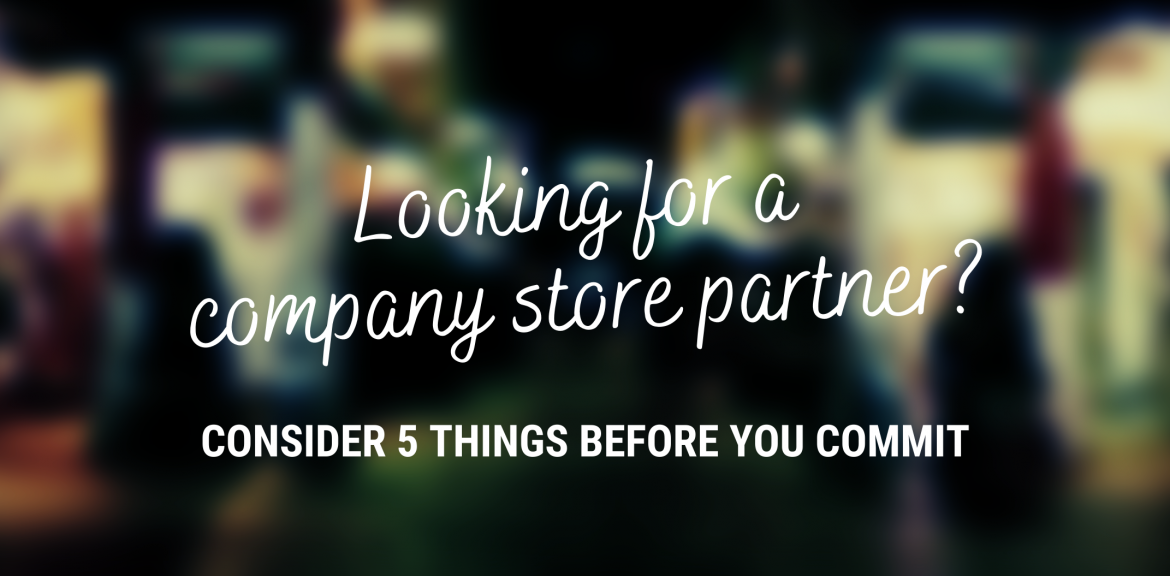5 Questions to Ask Before Partnering with a Company Store Provider
As the old saying that goes, “Company stores are like icebergs. On the surface they may look the same, with similar structures and page layouts. But, once you look below the surface, that’s where the real differences come!” OK, that phrase may not technically be an “old saying” where you come from, but in our world, the premise certainly rings true.
With the onset of Covid-19, we’ve noticed an increasing demand for custom company stores to help shrinking teams efficiently manage their branded swag and apparel with fewer resources. These custom stores could be anything from full-on reward or sales incentive stores to branded apparel stores or smaller branded gift stores offering a one-time “Thank you” gift to clients or employees. No matter what challenge you look to overcome or efficiencies you seek, it’s important to understand that all stores are not created equal.
At Identity Works, we have been building custom branded stores for the past two and a half decades. Over those 25 years, we’ve learned some things and taken a few notes on the good, bad, and ugly of company store relationships and the system infrastructures needed to keep those stores running smoothly. If you’re looking to partner with a company store provider, read on for five important areas to consider before signing on that electronic dotted line.
1
Is the store built and supported by the company offering the solution you’re considering?
Simply put, if the store isn’t built and supported by the company you’re partnering with, your provider may have no control over when issues get fixed or upgrades to your store happen. This could prove troublesome if something unexpectedly breaks on your site or an upgrade happens during your store’s busy time of day. Along the same lines, be wary of franchises. In some instances, their primary focus may be to grow their network, and they may have little knowledge or ability to provide actual support for the online solutions they sell.
2
Can the solution fit into your existing business processes and be customized to address your organization’s specific needs?
In order to get the maximum benefit out of your online procurement system, it’s important to find a partner who can grasp a full understanding of your needs and translate those needs into specific functionality for your unique situation and challenges. Many third-party solutions either do not offer custom functionality or charge more for development related to customization.
It’s also important to understand how easy or difficult integrations will be with the solution you’re considering and your current systems. In the age of virtual events and less face-to-face interaction with clients, we see teams leveraging branded gear within their campaigns, using swag as a follow-up gift after a meeting or as a thank you for coming on board. In these situations, choosing a provider who has experience integrating with third-party CRMs can offer even more efficiencies by eliminating the need for your team to manually input client information into a second system as they usher leads through the funnel. Similarly, PunchOut integrations with a procurement system can add value to existing systems without disrupting current processes. After all, what’s the point of bringing on a new solution if it can’t talk to your existing systems and offer a smooth experience for your team?
3
How does the provider handle distribution and shipping?
If the solution you need involves inventory, there are some things you should ask to clarify:
-
- When one of your employees wants to order off the store, do they know exactly when that product will ship? Do they have a choice of where the product will ship?
- Where is inventory stored?
- What controls are in place to ensure the correct product is shipped out?
When it comes to handling inventory and distribution, the ideal solution provides accurate information on the front end, with established production and back office processes in place to ensure products are decorated correctly, picked correctly, and shipped correctly. Gaining a full understanding of these idiosyncrasies in the beginning will save you time and headaches in the long run.
4
Is the system mobile-friendly?
Although the tide is slowing changing, most B2B interactions are still done by computer. Even though this is the case, mobile-friendly systems allow your users to order product on the spot, quickly get answers, or check the status of an order without having to walk back to an office or open a laptop. Systems that are built first with mobile in mind give all users the experience they deserve (and have become accustomed to in their personal lives), no matter what device they use.
5
How expandable is the solution? Can it grow with your business?
We often find that once we have built a system for a client that focuses on the procurement of branded apparel, print, promotional items, or other marketing products; over time that client finds other ways that they’d like to use that solution within their company’s processes to create even more efficiencies. Streamlining an employee anniversary program or managing events through their existing systems are common examples we see. It’s important to keep in mind that template driven, third-party systems typically do not allow for that type of expandability.
—
The bottom line.
From bug fixes and upgrades to integration into your existing systems and adaptability for your future needs, we believe in partnering with a provider that can provide scalable and ever-evolving technology solutions. Research diligently, ask hard questions, and don’t be afraid to challenge your potential partners in order to find the solution that works best for your organization. You’ll be glad you did.

